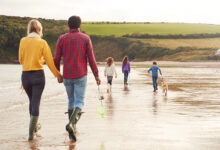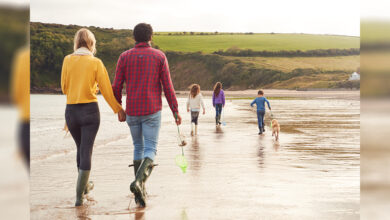The Family Unit
Summer Fun Safety Tips
There’s nothing quite like spending lazy, hazy summer days at the poolside or outdoors.  But with school finally out and the beautiful summer weather upon us, fun in the sun also means a host of different safety concerns families need to be aware of. Being informed about summer’s different health and safety concerns and how to prevent them ensures your entire family can have a fun and safe summer.
But with school finally out and the beautiful summer weather upon us, fun in the sun also means a host of different safety concerns families need to be aware of. Being informed about summer’s different health and safety concerns and how to prevent them ensures your entire family can have a fun and safe summer.
“If parents are educated about this, it actually empowers them to take on the prevention. A lot of times, parents just may be unaware of the dangers,” explained Dr. Michelle Ponti, pediatrician in London, Ontario. “The more prevention we can have, as far as educating parents about all these safety tips, the better,” added Ponti, also a member of the Canadian Paediatric Society’s Public Education Advisory Committee. Whether you’re having fun in the sun, the pool, or the great outdoors, here are some tips to keep the entire family safe all season long.

Sun Safety
Sunburns, rashes, overheating, heat strokes, and dehydration are some of the most common illnesses Dr. Ponti sees children come in for during the summer months. To prevent these heat-related illnesses, she suggests families avoid being outdoors during the peak hours of 11 a.m. to 2 p.m. When out during these hours, it’s best to use sunscreen. The Canadian Paediatric Society (CPS) recommends that sunscreen should be applied at least 30 minutes before going outside, cover all exposed areas of the body, and be at least SPF 30. Don’t forget to apply sunscreen on the ears, nose, back of the neck and legs, and tops of feet. Sunscreen should not be used on babies under six months.
A lip balm of SPF 15 is also a good idea along with wearing sunglasses with 100 per cent UV protection, according to the CPS. Additionally, Dr. Ponti recommends wearing garments that protect from the sun, sunhat and covering strollers, so infants and toddlers are protected from the sun. Younger children are more susceptible to environmental triggers, and remember that children can be sunburned even on cloudy days. Too much exposure to sun or a bad sunburn could be a precursor for skin cancer later in life. If you’re concerned at all about potential heat-related illnesses, Dr. Ponti recommends seeking a medical opinion as soon as possible. Signs of heat-related illnesses are thirst, fatigue, cramps, and cool and moist skin.
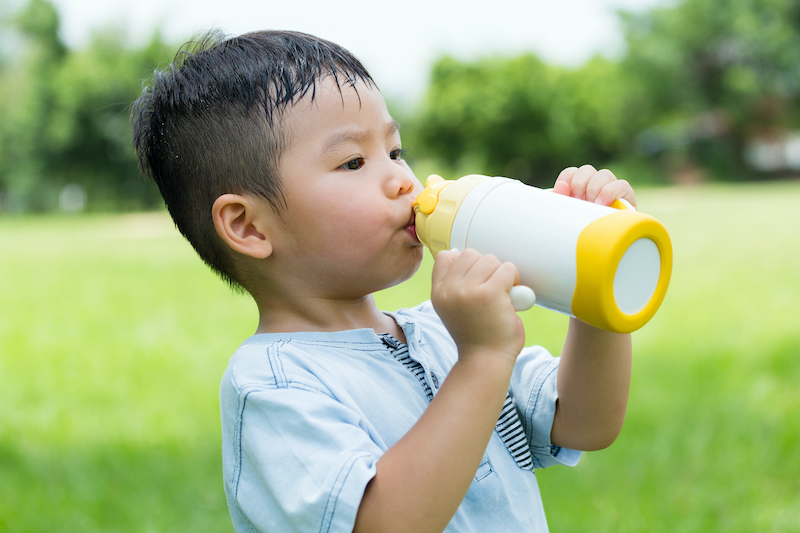
Hydration
Of course, another crucial aspect of preventing heat-related illnesses is proper hydration. Although hydration depends on the age of the child, experts generally agree that the hotter the day, the more important it is to ensure children and adults are properly hydrated. It’s especially important that parents keep a keen eye on their children’s hydration levels, says Dr. Ponti.
“Kids get busy playing and are excited in activities, so they actually forget. So, parents need to be the ones to remind their kids to keep hydrated. At least every hour they have to be thinking have they had something to drink,” noted Dr. Ponti. This is especially something to consider when around water, says Dr. Ponti. “When you’re around a pool or water, people especially forget to drink because they think they’re surrounded by water.”
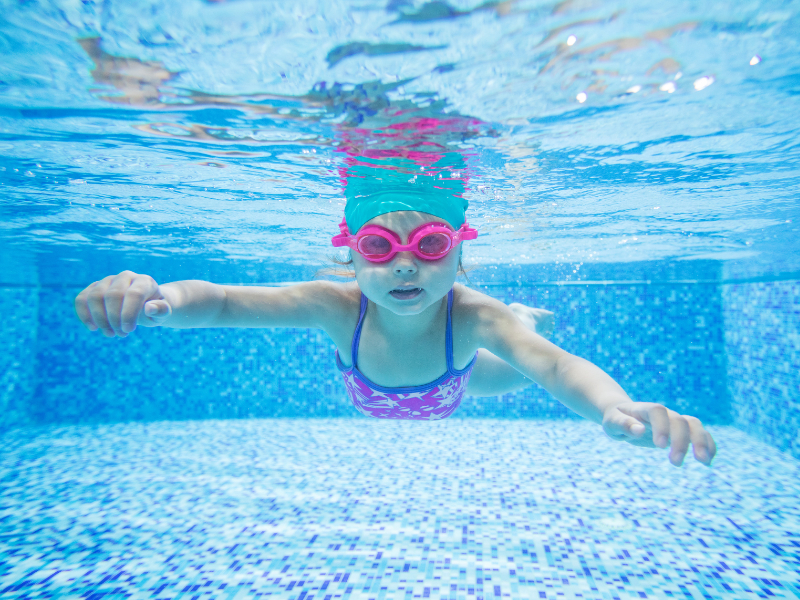
Water Safety
While staying hydrated at the poolside, there are also several other safety precautions families need to take while around water. Because it’s so easy for young children to get carried away with the excitement of playing in water, experts recommend that babies and toddlers should always be within arm’s reach of an adult. Dr. Ponti also warns against the terrible consequences of distracted parenting and the use of cell phones around water. “It’s too easy to look down and get wrapped up in a text or an email.
Drowning can happen within seconds. So, a few minutes on a text is very dangerous,” warns the pediatrician of 20 years. Ponti suggests that parents either leave their phones inside when at a backyard pool, or avoid using them entirely while your child is around the water. Other water safety tips include using life jackets and personal flotation devices when necessary, and ensuring they are the right size and are correctly buckled. The Canadian Paediatric Society also recommends swimming lessons as an essential way to ensure water safety.

Bike Safety
The dangers of distracted parenting are also as a valuable warning for bike safety. Everyone knows the common standards of bike safety such as wearing a helmet, having an appropriately sized bike, using training wheels, riding in a safe area, and having a bell. However, avoiding distractions and cell phones is not necessarily the first thing that comes to mind with bike safety.
“What we’re seeing more and more is distracted parents. Parents might be outside with their children, but they’re on their phones,” said Dr. Ponti, adding that children need monitoring and parental supervision when on a bike. Avoiding the use of cell phones while riding is an essential reminder for teenagers and adults as well, as there is a rise of injuries related to cell phone use while biking, walking, and jogging. By avoiding cell phones when riding bikes, parents can not only ensure their child’s safety but can also model the healthy use of screens, says Ponti.
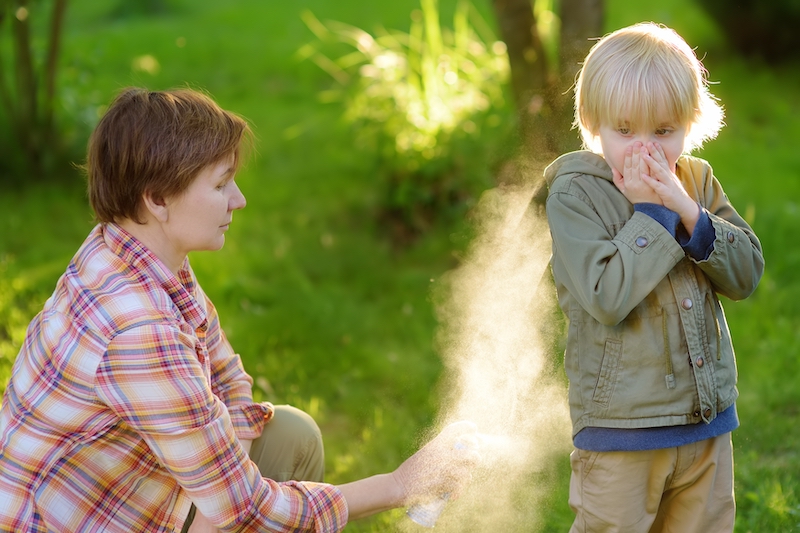
Bug Safety
Critters such as mosquitos and other bugs are a staple of the summer months, and even though a mosquito bite can usually do little harm, ticks are another story. Tick bites can lead to dangerous diseases such as Lyme Disease so avoiding them is critical. The best precautions to take against ticks are to wear clothing that covers your body and wearing closed shoes with socks when in the wilderness.
Additionally, Dr. Ponti recommends that parents check out their local health units to see what the current advisories in the area are, what are the spikes of illnesses, and what are other environmental concerns. Other measures to avoid nasty bug bites include using repellents, being aware of standing water, and using a net over strollers.

Food Safety
Outdoor cookouts are at the heart of summer for many families, but summertime also increases the risk of food poisoning, according to Health Canada. This is because harmful bacteria thrive in warm and moist conditions. To keep food from spoiling, Health Canada recommends not to keep food at room temperature for more than one hour.
When outdoors, use coolers with ice packs to store perishable items and keep them out of direct sunlight. Also, separate coolers for food and drinks so food coolers aren’t opened as much. Also, remember that colour isn’t always a reliable sign if meat is safe for consumption when grilling this summer. Health Canada recommends using a digital thermometer to ensure that your steaks and hamburgers are ready to eat.



